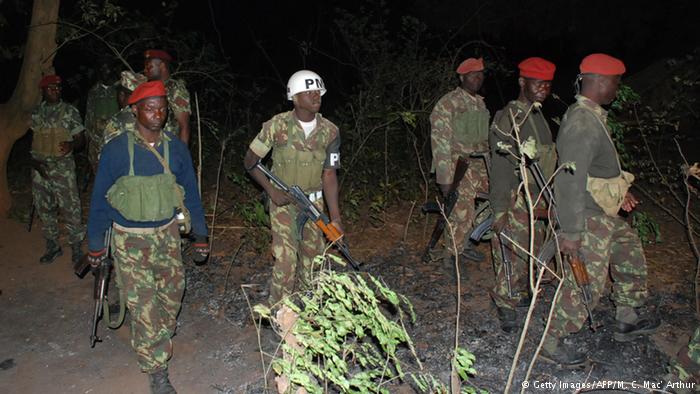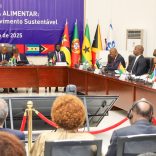Mozambique: Chapo calls on CPLP to work for food sovereignty
“Lack of dialogue in Mozambique highlights polarization”

In an interview with Deutsche Welle Africa, a professor at Leiden University in the Netherlands says that a return to civil war in Mozambique is unlikely, but that the conflict between Renamo and Frelimo undermine the long-term peace initiative.
For Corinna Jentzsch, Assistant Professor of International Relations at Leiden University in the Netherlands, the lack of national reconciliation and the failure to integrate ex-combatants are mainly responsible for the current political instability.
The effects of the Comprehensive Peace Agreement of 1992, which marked the end of 16 years of civil war in Mozambique, is losing strength more and more, she says, and the intensification of the conflict between Renamo and Frelimo in recent months has highlighted the polarization and social inequality in the country.
“Social polarization has persisted in the years since the peace agreement. The country remains divided between supporters of Renamo and Frelimo, between the North and the South,” says Jentzsch, who has done field research on the civil war and the peace process in Mozambique.
“Renamo supporters complain of discrimination and lack of access to jobs. And now the country faces a sharp growth of social inequality, which means that not everyone shares in the profits generated by natural resources.”
In a statement released last week, Renamo said it would only talk with Filipe Nyusi’s government once the party assumes governance of the six provinces where it claims victory in the 2014 general elections.
Jentzsch attributes Renamo’s position to the inability of party leader Afonso Dhlakama to enter into a democratic political environment. According to her, Dhlakama still has the mentality of a guerrilla, and, in turn, Frelimo accentuates rivalries.
“Repression is increasing. Frelimo proposes the idea of national unity to the point of silencing the opposition. There has never been a process of reconciliation at the national level. The war continued not purely with violence, but with words. All social problems in Mozambique are seen today in the shadow of the conflict between Renamo and Frelimo. These differences were not overcome, therefore the rivalry from civil war goes on,” she says.
The solution is still dialogue
The last few months have been marked by attacks, kidnappings and murders, with exchanges of accusations between Renamo and Frelimo. Nevertheless, Jentzsch says a return to civil war is unlikely.
“The current violence is concentrated in specific regions and has not yet spread throughout the country. While Renamo is provoking the government attacks, it remains a weak party. The question is whether the party will get the additional support from the population it needs to become a real threat to the government,” Jentzsch says.
Several sectors have offered to mediate the conflict. The involvement of the Catholic church and the president of South Africa, Jacob Zuma, may have a positive effect, but according to Jentzsch, dialogue between Renamo and Frelimo is still the most effective means to achieve a permanent settlement.
“In the long run, it will be necessary to overcome the idea of ‘us against them’, used by both sides. And that requires a broader process involving more than attempted meetings.”













Leave a Reply
Be the First to Comment!
You must be logged in to post a comment.
You must be logged in to post a comment.